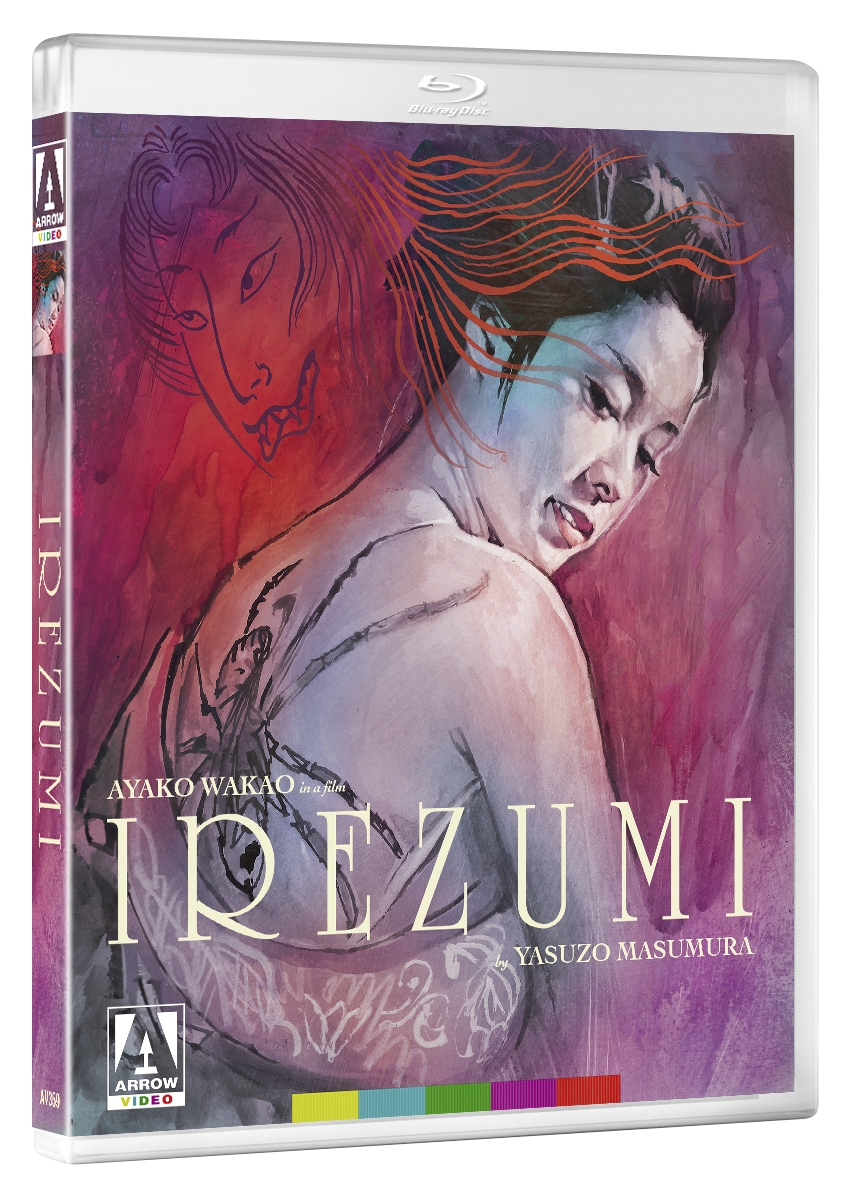
Irezumi (1966)
directed by Yasuzô Masumura
starring Ayako Wakao, Akio Hasegawa
Arrow Video
Based on a story by one of Japan’s great writers, Junichiro Tanizaki, Yasuzô Masumura’s Irezumi is a beautifully staged and acted tragedy that heralds shocking changes to Japanese art and cinema as the classic elements of geisha and samurai movie are about to be subverted and reinvented by a new generation of artists. The film can be read as acknowledgement that some of the old ways are coming to an end.
Irezumi begins in the middle with a woman, sold into prostitution and being marked with a large tattoo of a spider with a woman’s face on to her back. The tale quickly reverts to the beginning where the two main characters Otsuya (Ayako Wakao) and her boyfriend Shinsuke (Akio Hasegawa) flee the dull life as a small town pawnbroker. The pair have no money and after a time holding up at a friend’s inn, he Otsuya into prostition to remedy their debts and arranges to have Shinsuke murdered. The hapless Shinsuke manages to kill his assassin but is now trapped with no money, ostracized from his family and probably wanted for murder, but he is determined to get Otsuya back. Meanwhile we catch up with Otsuya’s tattooing. Instead of letting the shame of her situation break her, she takes on the spirit and power of the man eating spider on her back and rises up through the ranks of being a geisha. She buys her own independence and runs her own geisha house. She makes extra money running grifts on samurai and wealthy men. When Shinsuke reappears she seizes the opportunity and spins a web of manipulations leading Shinsuke to exact her revenge on the people who sold her in to slavery. Suffice to say this story does not end well for any of the players.
The entire film relies on the performance of Ayako Wakao, who plays Otsuya as a despicable yet captivating anti-hero who may be leading everyone in her orbit to their doom, but you are still pulling for her from her early, bratty, manipulations of her boyfriend all the way through to her final murderous madness.
Made just couple of years before outsider directors like Teruo Ishii would splash the screen with sex, nudity, and gory, Irezumi bridged the gap between stodgier fare and the glorious excesses of the Roman Porno and Pinky Violence films that would soon explode across Japanese movie screens. With the film’s striking color palette and at least vaguely feminist subtext Yasuzô Masumura seems to be acknowledging the changes coming to Japan by a the younger generation. Although comparatively subdued, the film is still a daring piece of mid-sixties Japanese cinema.
Arrow Video has released Irezumi on a terrific Blu-ray boasting a new 4k film transfer and a bevy of disc extras including an audio commentary by David Desser, author of Eros Plus Massacre: An Introduction to the Japanese New Wave Cinema, an introduction to the film by British writer Tony Rayns, and Out of the Darkness, a brand new visual essay by Asian cinema scholar Daisuke Miyao.












